Love Is Where You Find It—Jeanne Crain & Paul Brinkman
Some years ago a boy and a girl in Hollywood found themselves considering a unique romantic problem—they were so much in love with each ‘other that they were beginning to wonder if it would be wise for them to marry.
It was the girl who was first so disturbed that she put her fears into words. As she talked, the boy began to realize she was bringing something to light which had been bothering him, too. What she was saying was that she thought they might be too infatuated to see what they should be seeing in each other. Their love was growing but, curiously enough, not their actual knowledge of each other. Aspects of character which should have been apparent were overshadowed by the fact that they had stars in their eyes when they were together. Facts they should have been exchanging about themselves and their attitudes were never gotten around to.
Therefore, in the courtship of Jeanne Crain and Paul Brinkman there came a pause. The hand-holding was skipped while they discussed themselves as individuals whose habits and ideas were part of their fe personalities. They tried to examine these in a sober, analytical light instead of a love light. Getting down to brass tacks when they were so much in love wasn’t easy.
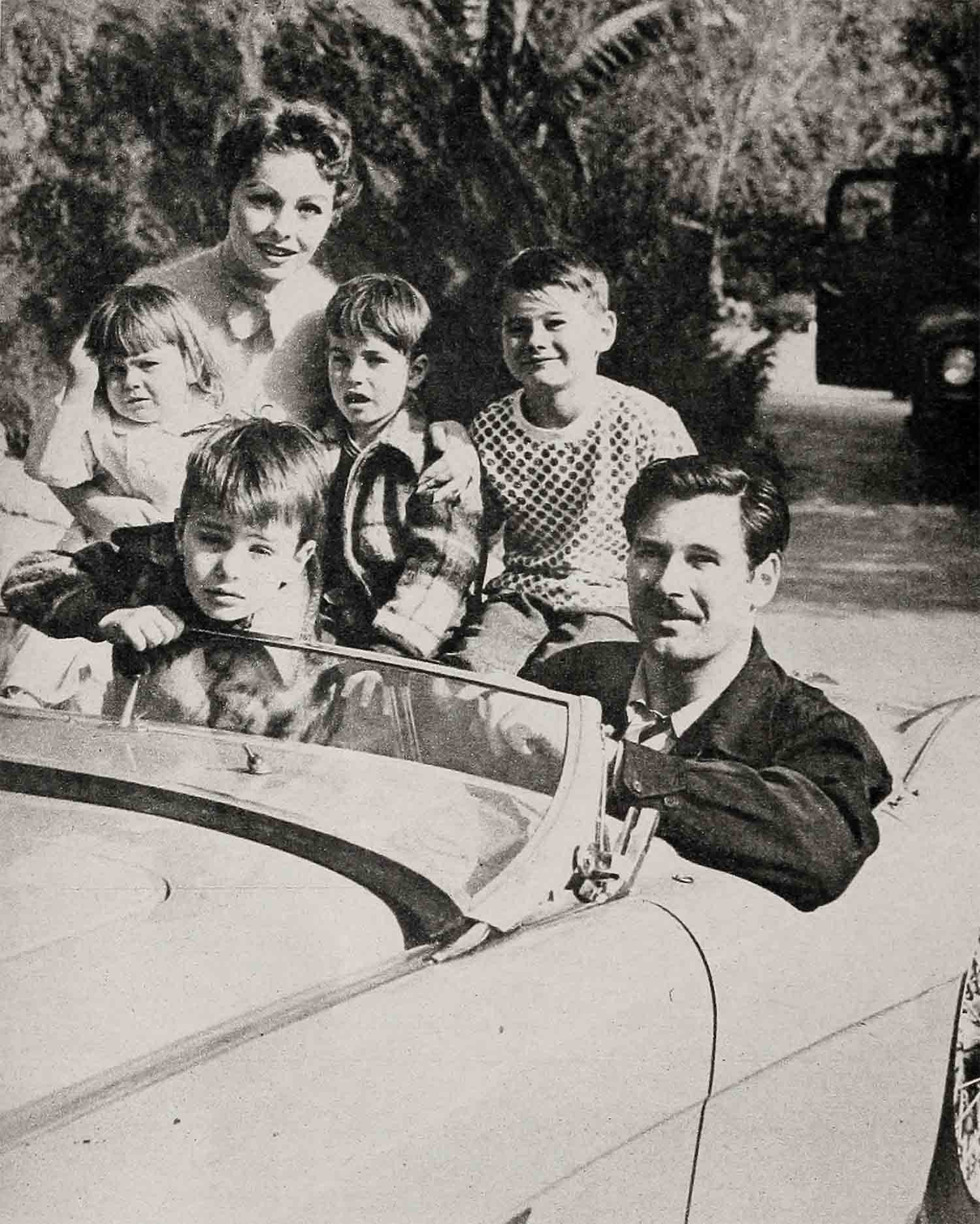
And if today Jeanne and Paul and their four children are one of the happiest families in Hollywood, it is not altogether a break of fortune. As well as they could with a lot to consider, Jeanne and Paul planned it that way.
“If we accepted them then, we would not be so easily inclined to resent them later. But, heaven be praised, on most things we found ourselves in accord, particularly the most important things. We had a common religion which would give our union a good foundation, and each of us had projected a pattern for marriage that was not unlike the other’s. I don’t mean that we planned all our steps ahead. You know no one could. But we did know the kind of home we wanted and we wanted the same relationship to each other and to our home. It cut down the unpleasant surprises that can come up when two people begin to live together. We knew where we were going with our marriage.”
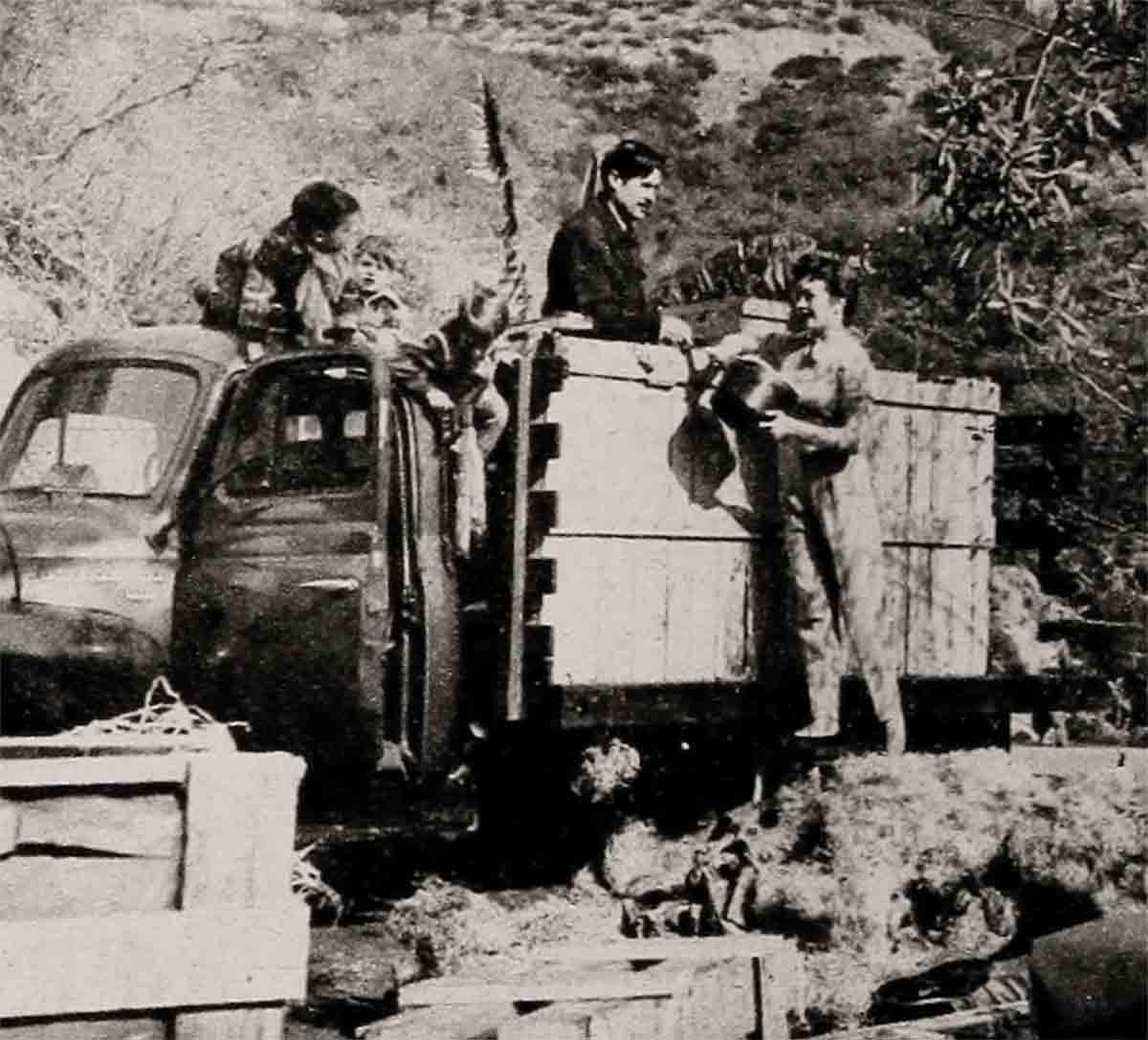
Jeanne and Paul still know where they are going. And. if they feel that they won’t go the way of too many wedded Hollywood couples it isn’t a case of being too sure of the unsure. It is rather a quiet confidence based on the fact that the security of their marriage is something they have guarded from the very beginning. A lot of people remember that Paul was an actor when he met Jeanne and think that he switched to manufacturing because he wasn’t catching on in the movies. The real story has never been told before.
Paul was considered a fine prospect by RKO. He has a nice personality and is not only handsome but quick and intelligent. But when he decided to marry Jeanne, they agreed that two public careers in one family was an invitation to trouble. A month before the wedding Paul quietly got his release from the studio. He is head of his own plant today, manufacturing electronic and radar equipment. He likes his work and believes that he has had far greater and more stable success than he would have had if he had remained an actor.
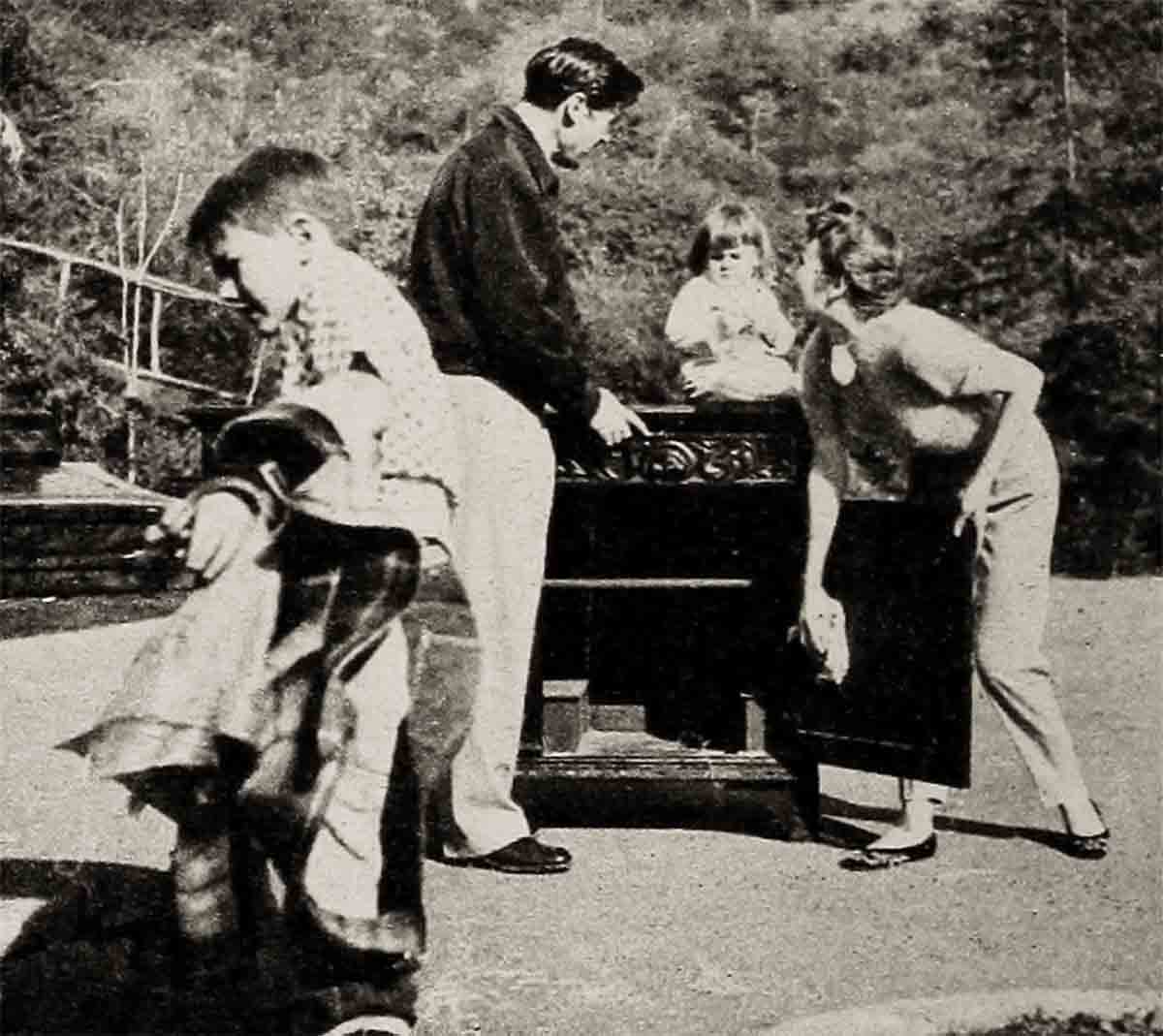
Jeanne has always been thankful that Paul has had studio working experience. “He knows that making a picture is hard work,” she says. “He knows what an actor must contribute in terms of nervous energy and he knows that when I go to the studio I don’t just sit around trying to look glamorous.”
Neither Jeanne nor Paul takes any stock in reports about marriages that have blown up overnight; they cannot believe that this actually happens.
“No one breaks up because somebody has danced too long with somebody or smiled too often at them,” Jeanne has declared. “This can’t be. There is a bigger and deeper reason. There was something basically wrong that should have been attended to. But it was allowed to grow until it overcame the bond of attraction the husband and wife originally had for each other.
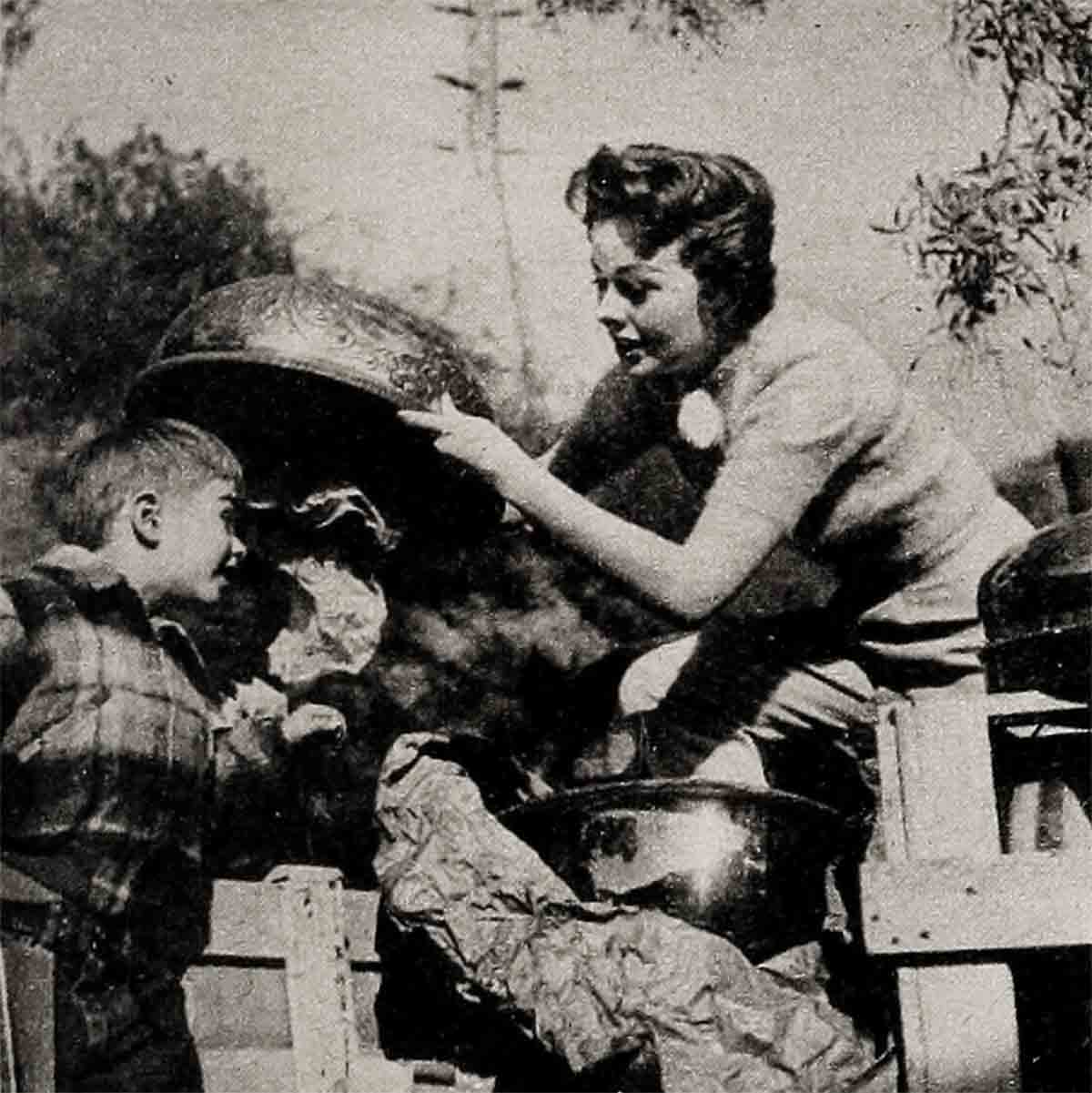
“As a matter of fact, I can’t persuade myself that people who get divorces within three years were ever really in love. I don’t mean that my marriage has made me an expert. But in my judgment, anyone enough in love to get married, and enough in love to stay married for three years, could not have gotten over that love overnight. On the contrary, a marriage is or should be just beginning to knit in that time. Love doesn’t just fly out the window; it is killed or allowed to die little by little. That’s why I wonder if they ever could have been in love.
“I remember that when I was a young girl my fanciful conception of love was a wonderful musical composition with the sweetest of that music played at the very beginning. It didn’t strike me then, as it does now, that if this were the case the music would have to peter down to a most insipid melody. Marriage can be like a symphony, opening on a theme of love, and then developing and exploring this theme in ever finer and more soaring passages.”
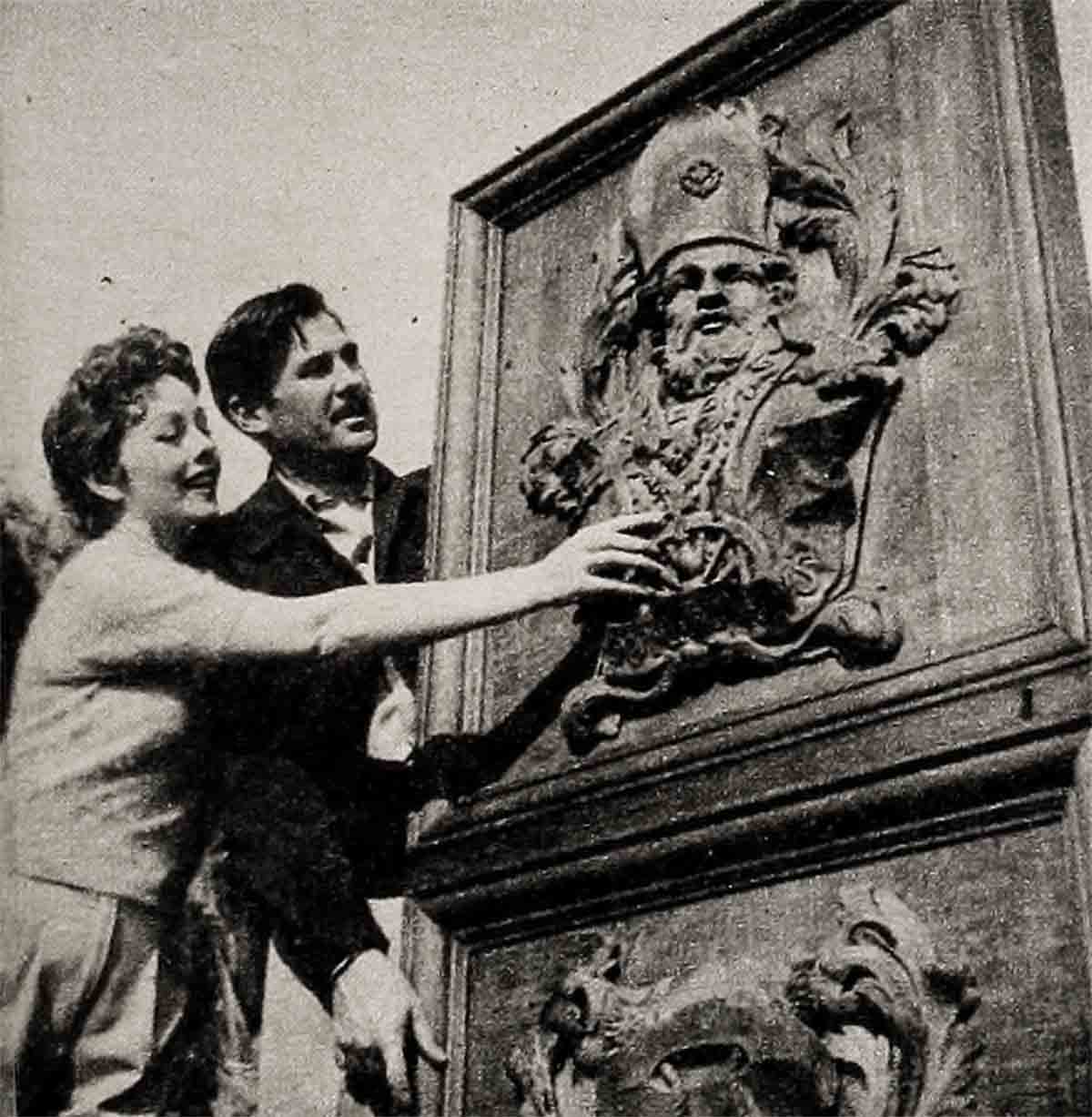
Not long ago Jeanne was saddened by the divorce of a couple who had been married for three years and had two infants. When she and Paul discussed it they both remembered that right from the start this marriage had puzzled them. In the first place, both husband and wife seemed bent on going out to seek social gaiety. They appeared happy, but they seemed to need the stimulus of convivial society to keep them happy. By contrast, Jeanne and Paul remembered, they had retreated from their everyday world during the first months of their marriage; it had seemed natural to require no other amusement.
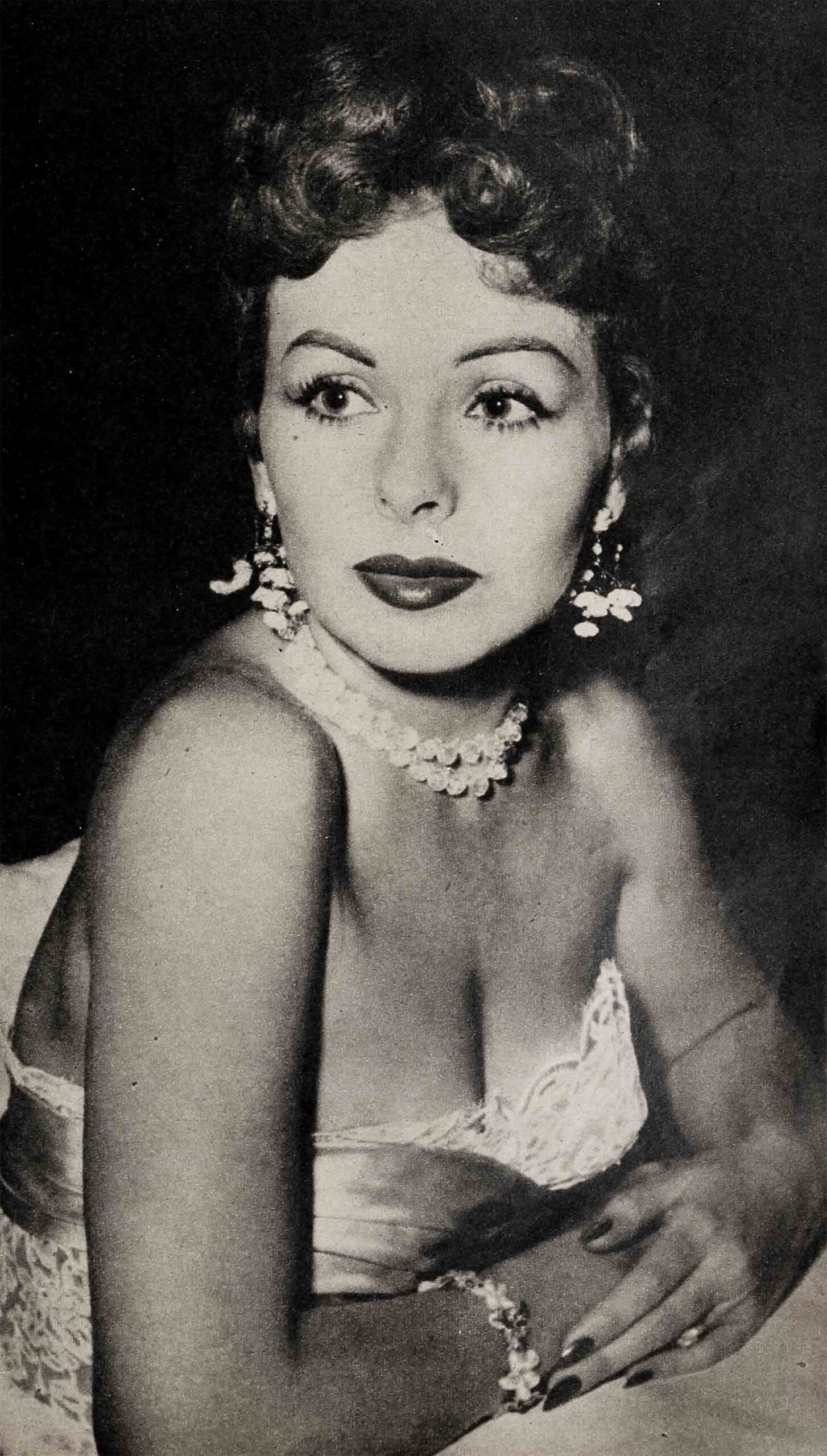
“It seemed to us they were getting little out of their marriage,” commented Jeanne. “They were awfully casual, even cold, about something which should be the most important and exciting event of their lives!
No one has yet asked Jeanne for advice on marriage but she is accumulating quite a stock of it—for good reason. She is the mother of three boys and a two-year-old girl.
When Little Jeannie gets around to asking questions she is going to find her mother prepared to elucidate. The first piece of advice she will hear, probably, is that girls romantically touched should make sure they are really in love and not playing a game. (Later on, when Little Jeannie is married, her mother will have something to say about developing her life in all possible ways and avoiding reducing wifehood to a routine of checking the power of her femininity.)
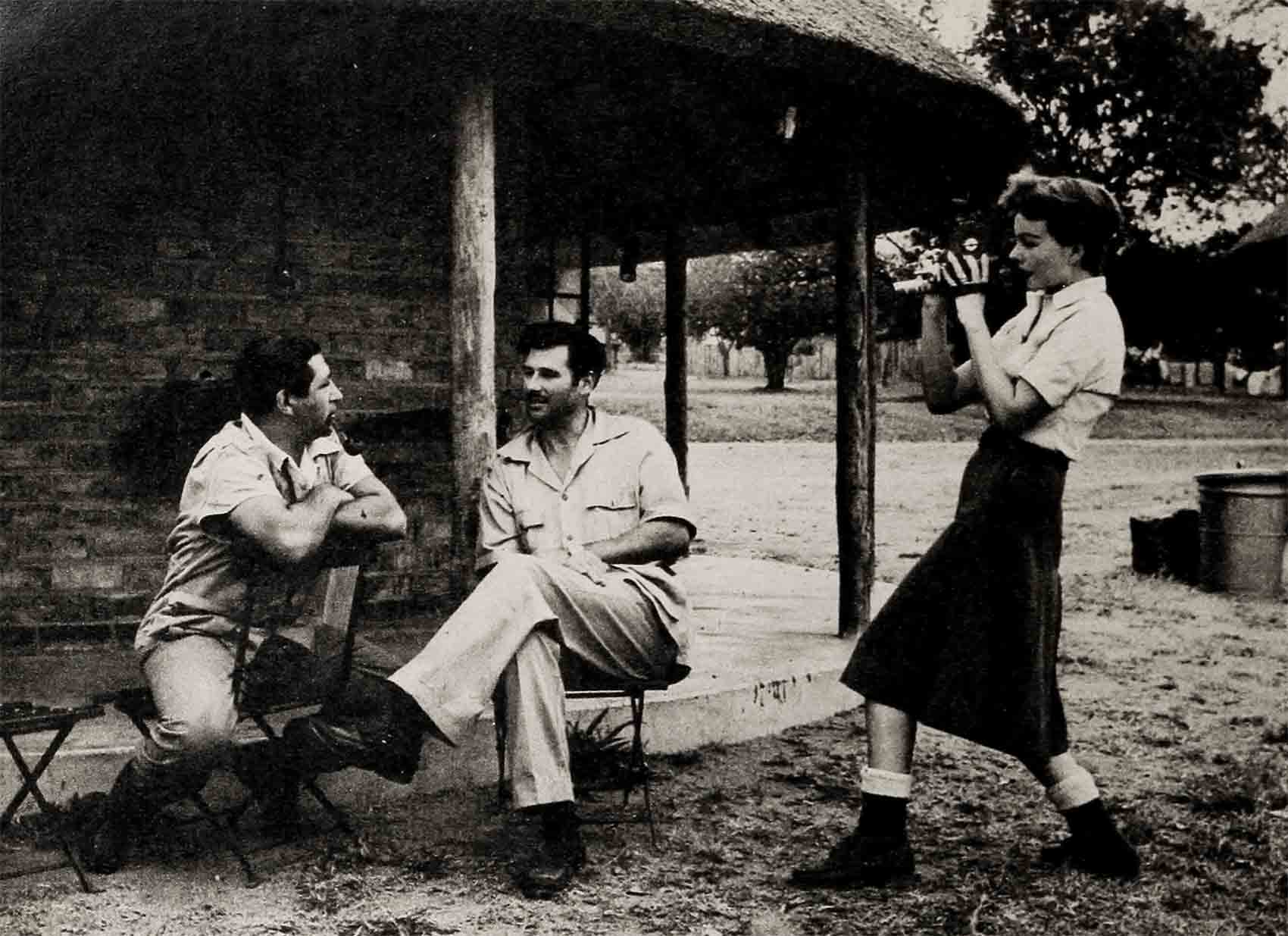
The advice about playing games will go something like this in her mother’s words: “A girl may have all the boys in the stag line climbing over each other in their efforts to win her favor but this doesn’t necessarily mean that the fellow who beats the others out is automatically Number One choice for a husband. He may deserve a dance, but not her whole future. She may make a good dancer, but not a good wife. Sometimes there is a little confusion about this which, sadly enough, isn’t straightened out until after marriage.
“Without a whole stag line to play to, with only her husband’s attention to get and to hold, she may find herself getting a little bit uneasy. Now, she learns, the job is not just that of giving a smile or a clever word. She is no longer just the person she dressed herself up to be. It is time to be the person she really is.
“I think the tip-off Paul and I had that we had a good chance for a successful marriage is that we didn’t have to make any special adjustments—love made our little individual sacrifices easy; it was fun fitting one’s plans to please the other fellow’s. For us it still is.”
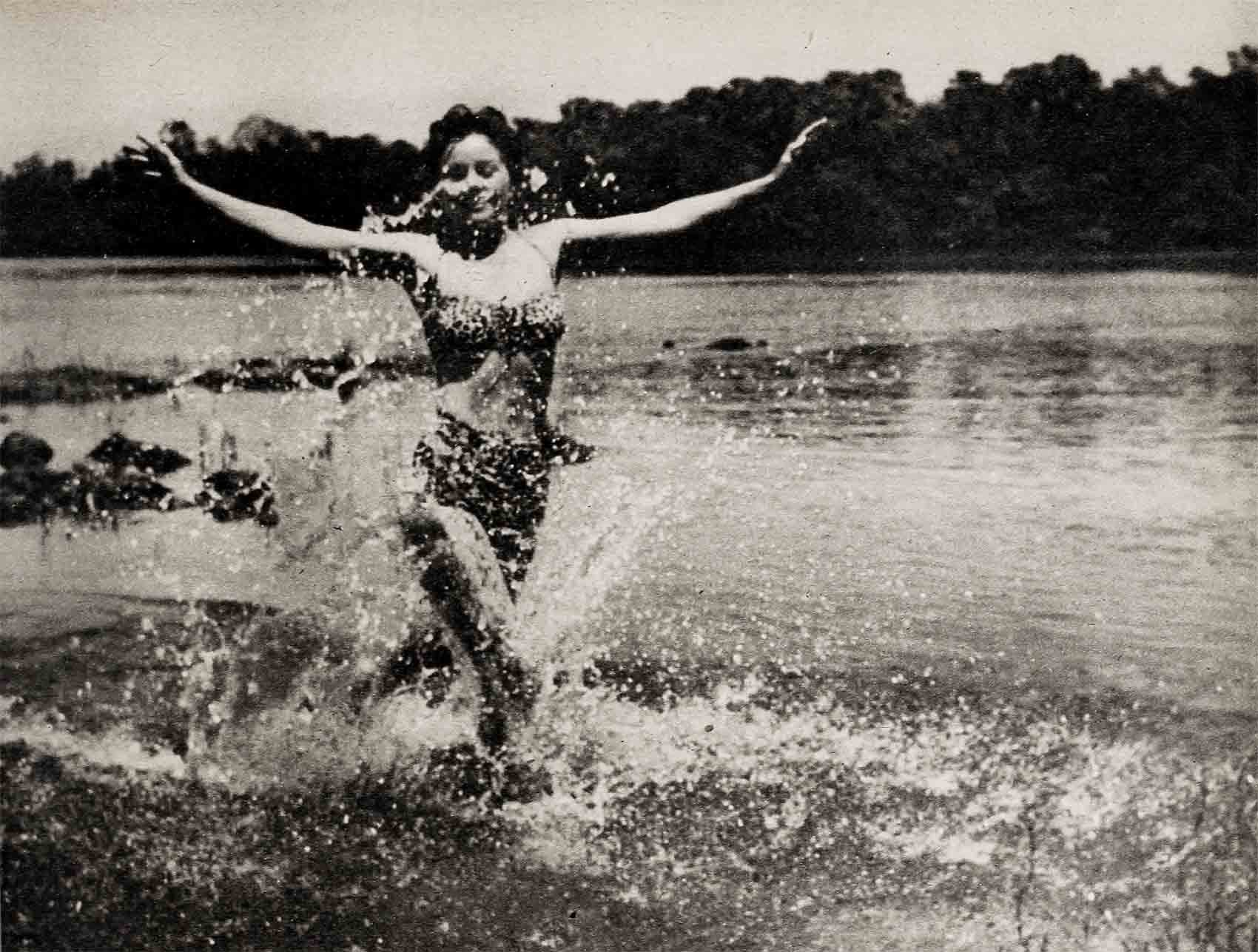
Anyone keeping an eye on the Brinkman family would soon note that they follow another wise policy—they do not subject their marriage to undue strains. For instance, take the matter of enforced separations, a common evil in the home life of a movie player in these days of location shooting or filming abroad. These days a husband or a wife leaves Hollywood for far-away work every day. Always there is a statement, issued jointly by the one leaving and the one staying, that the parting in no way affects their marital status. Both express perfect confidence in each other and make sure that every columnist in town gets this straight. What is six months, or a year, or two years apart when there is perfect love? Sooner or later the answer to this question is publicized in legal terms. Inevitably, “unavoidable separation” is listed as part of the story behind the end of the marriage.
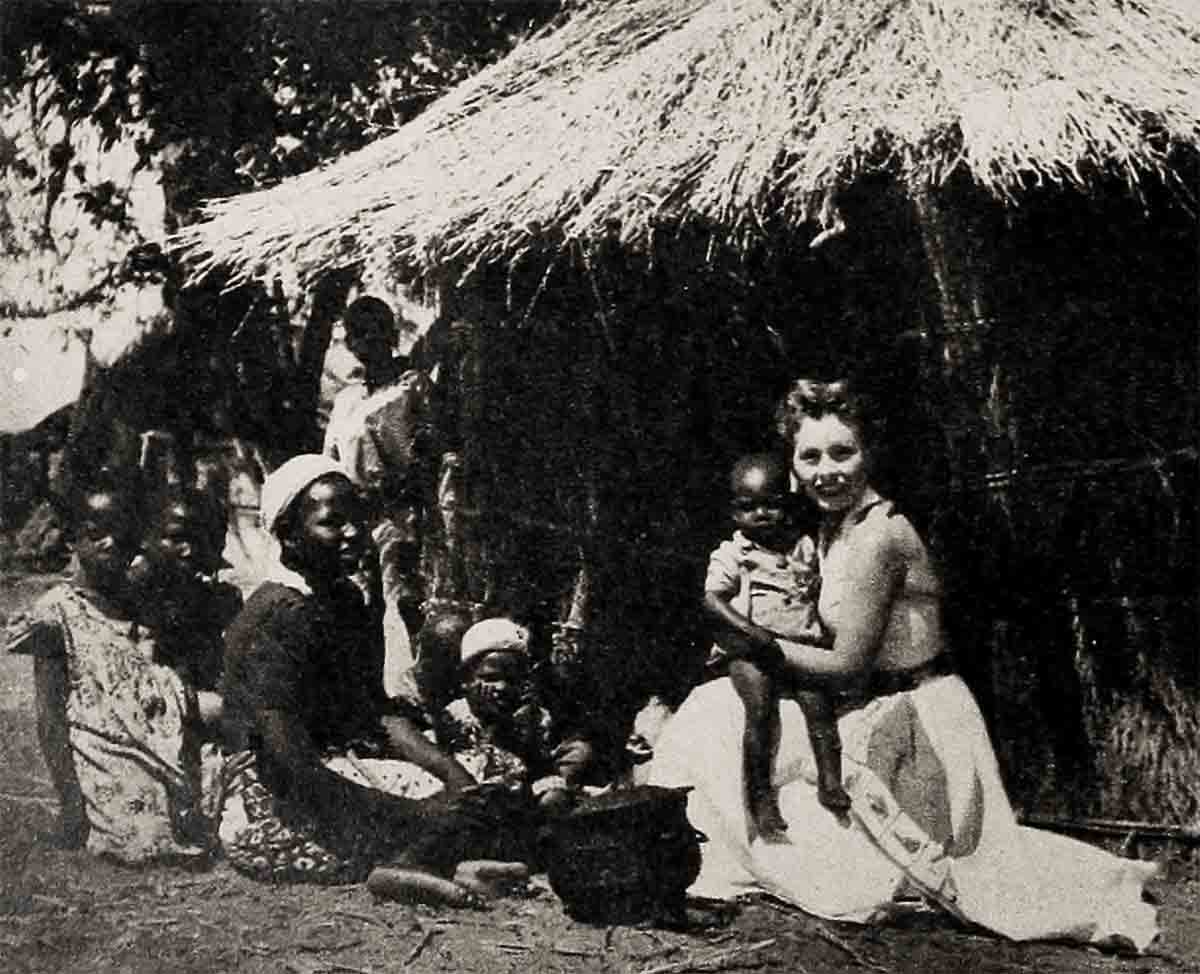
It isn’t happening to Jeanne and Paul. Her career has sometimes threatened to keep them apart for long periods, but it never has. Last August she had to go to Africa to make Duel In The Jungle with Dana Andrews. The trip and filming would take months. The very length of her absence from home was the best reason for her going without Paul. He had his business to handle, it was inadvisable to take young children all the way to Africa, and if they were left home for such a long period one of the parents should be with them. They considered Paul’s staying behind. But when departure time neared—well this is how Jeanne tells it:
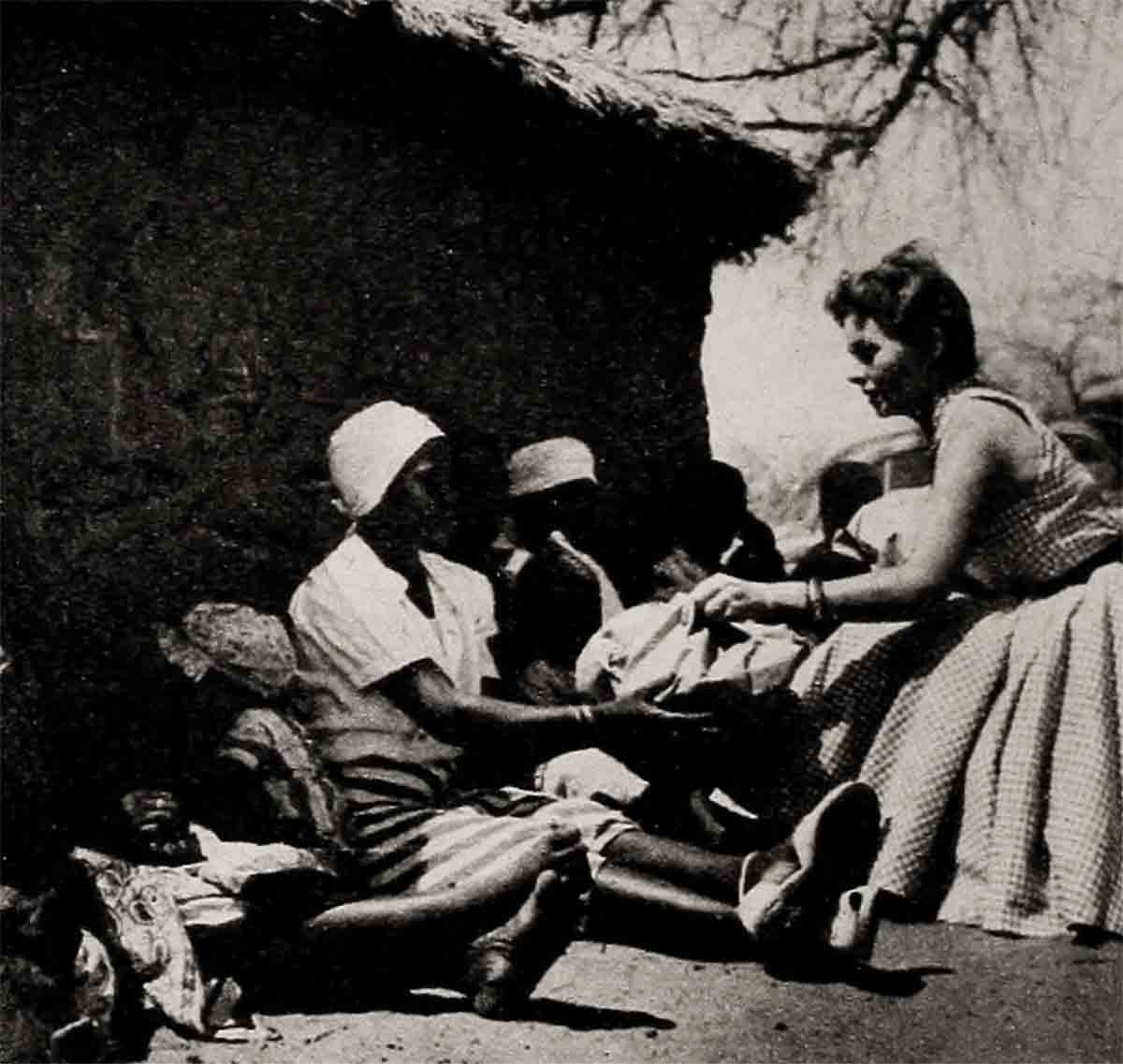
“We looked at each other and knew this couldn’t be! We were not worried about our love for each other fading. But when you are in love and that love is important to you—you just don’t take chances! Besides, this was one of the most romantic journeys on earth—a trip to fabled Africa—a place that had always intrigued us. This was exactly the sort of wonderful experience two people in love should share. We weren’t going to miss it.
“If ever Paul and I made a wise move it was this one. There are unforgettable sights and imperishable moments on this sort of trip and Paul and I had them together. When someone mentions Africa, I don’t remember it only through my own knowing but through Paul’s as well. This, I know, is what is meant by an extension of one’s personality in marriage and is, of course, an extension and enrichment of one’s life.
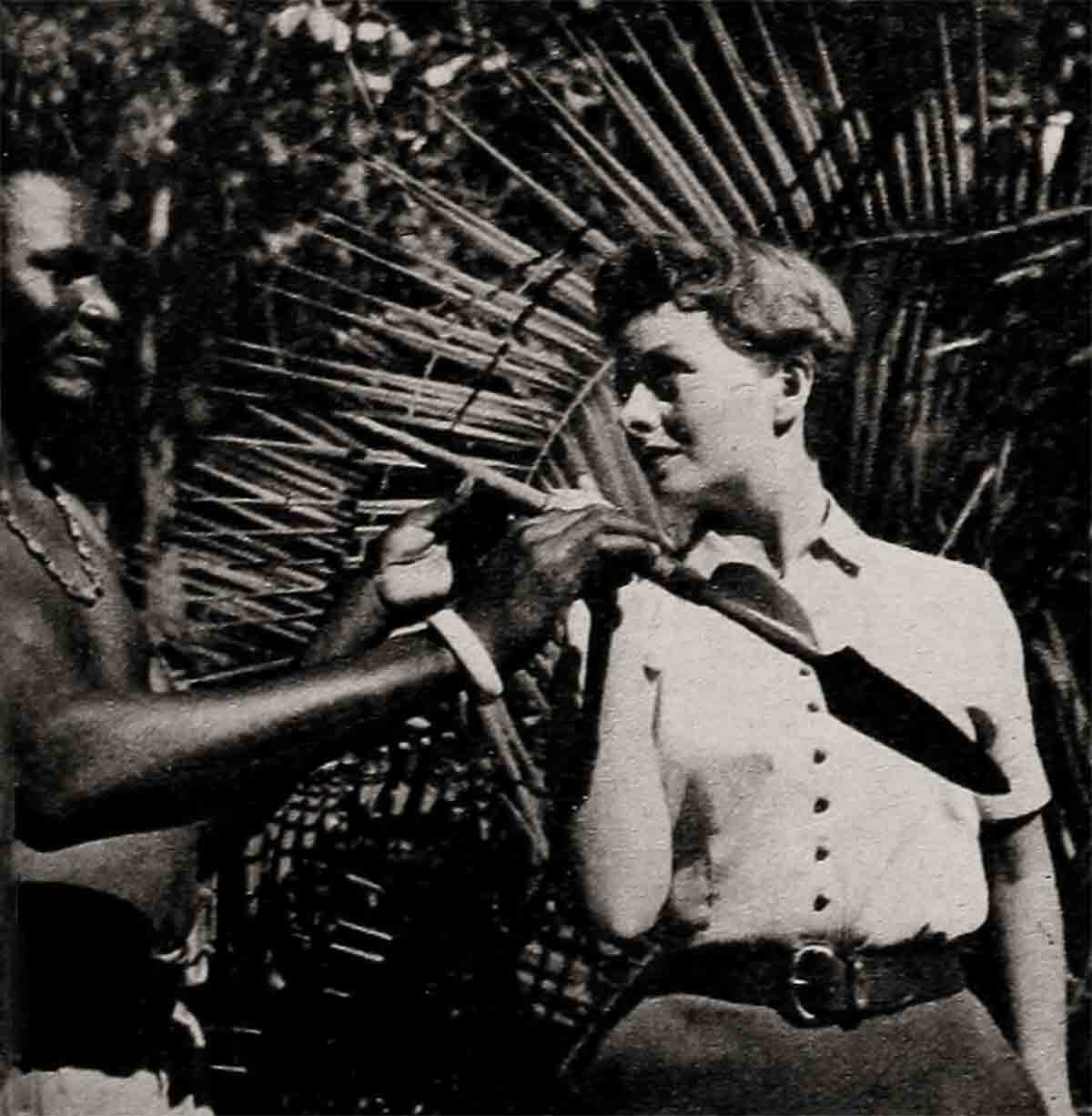
“I think of the night we reached Africa and flew over it. It was midnight when we got to Cairo and knew the Dark Continent lay ahead. The pilots told us that their course would follow the ancient Nile south for hours to the very heart of Africa. They didn’t have to tell us that there was a full moon overhead. This is a phenomenon Paul and I still have eyes for. Neither of us could think of sleeping. We sat up the whole night through, the only passengers awake on the plane, peering down at the Nile. At such a moment—mystic, exciting, romantic—it was a privilege to be together; it would have been a tragedy to have been apart.
“There were other moments, much more rewarding, much more significant because we were together and could appreciate them through each other’s eyes as well as our own.”
Jeanne and Paul were away four and a half months while she made Duel In The Jungle. Jeanne had to work quite steadily, but she did manage to get away to tour and camp with Paul in Kruger National Park where Africa’s wild game can be seen in its natural habitat. They slept in the little thatched huts that accommodate travelers and cooked their dinners over open fires. On the way back from Africa they spent three days seeing Rome, on foot and by horse and buggy.
They found the children, who had been left in Hollywood with the elder Brinkmans, in fine shape. Their lovely home was there waiting for them and the plant, due to Paul’s long distance supervision, was getting along fine.
Soon after their return they attended a well advertised industry affair and had to walk through a throng of movie fans waiting outside for autographs. As they passed two high school girls, they overheard themselves being described.
“There’s Jeanne Crain and Paul Brinkman,” one miss said to the other. “They’re married.”
“Well, that’s for sure,” agreed her companion.
THE END
—BY LOUIS POLLOCK
It is a quote. MODERN SCREEN MAGAZINE APRIL 1954





No Comments